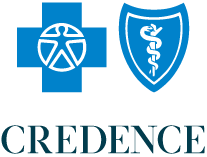4 MIN READ
More than 1 in 20 U.S. adults suffer from depression each year.2 If you’re experiencing mental health struggles such as depression or anxiety, you’re not alone.
Do you relate to one or more of the following? As a Credence member, you can use our Find Care tool on CredenceBlue.com to search for licensed mental health professionals in your network.
Signs and symptoms of anxiety and depression:
- Feelings of sadness, anxiety, emptiness or hopelessness
- Feeling anxious, frustrated, restless or irritable
- Losing interest in activities you used to enjoy
- Problems concentrating, remembering or making decisions
- Overeating or not eating at all
- Chronic headaches, stomach issues or chronic pain
- Recurring thoughts of self-harm or suicide
The CDC defines mental health as “our emotional, psychological and social well-being” that “affects how we think, feel and act. It also helps determine how we handle stress, relate to others and make healthy choices”.1
If you are having suicidal thoughts, please call the National Suicide Hotline at 988 now.
Unlike normal sadness or grief, depression won’t go away on its own. Left untreated, it can become a serious health condition. Talk to your primary care doctor about what you’re experiencing. He or she may be able to make some recommendations.
A healthy mind is just as important as a healthy body. If you’re feeling any of the symptoms above, you’re not alone. We are here to help.
Sources
1. Centers for Disease Control and Prevention, About Mental Health (accessed May 2023):
https://www.cdc.gov/mentalhealth/learn/index.html
https://www.cdc.gov/mentalhealth/learn/index.html
2. National Institute of Mental Health, Major Depression Among Adults (accessed May 2023):
https://www.nimh.nih.gov/health/statistics/major-depression
https://www.nimh.nih.gov/health/statistics/major-depression
This information is for educational purposes only and is not a substitute for personal care from a licensed physician. Please consult your physician for diagnosis and treatment options.

